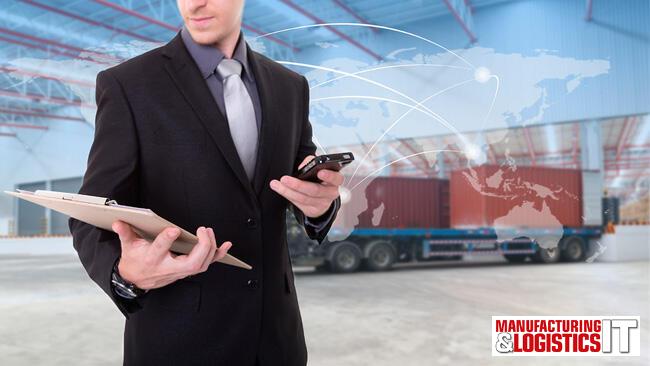By Paul Swaddle, Chairman, Pocket App.
Regardless of the sector, be it banking, insurance, retail or utilities, the whole world seems to be adopting a digital or mobile-first strategy at breakneck speed and the logistics industry is no different.
The reason for this digital transformation is simple; organisations are positioning themselves for the future, and with the smartphone arguably weighing in as the greatest technological disruptor of the 21st century, you have to either get with the programme or get left behind.
There are real monitory reasons why transport and logistical companies should be embracing mobile technology. Not so long ago, I read a survey conducted by Intermec, which showed how transport and logistics companies could save approximately £303,855 per annum as a result of process re-engineering and the implementation of mobile technology across workflows. The survey also revealed that nearly three quarters (72%) had not evaluated their existing processes for at least two years.
By digitally transforming their business, companies in this sector would be better placed to satisfy customer demand, streamline internal processes, meet business expectations, stay ahead of global competition and, most importantly, improve that bottom line.

Is adopting a mobile first approach going to be expensive?
Having worked for many years on the frontline of app development and digital transformation in the enterprise, I've witnessed a widespread misconception that this can only be done at great expense, and having worked with a number of logistics companies, I've seen that this concern is indeed prevalent in the industry.
This fear is understandable; the words 'digital transformation' even sound expensive. People hear them and assume they have to change every aspect of their organisational structure overnight, but this isn't the case. Many businesses can take huge leaps forward just by focussing on small, fundamental changes.
A prime example of how a relatively low cost digital change can have a dramatic impact is a project we undertook for Bridgestone Europe, a global manufacturer of tyres and rubber products, and provider of services and vehicle management. Bridgestone required a means of monitoring tyre pressure more efficiently than the manual procedures that were in place, so we developed a smartphone-based system which monitors pressure readings from Bridgestone's TPMS sensors using a Bluetooth Transceiver. Transmitters on the valves of each tyre send data to the Bridgestone Capture Pack (BCP), and then to the smartphone via Bluetooth. The phone displays the number of tyres that are under minimum air pressure, indicating which need to be serviced.
Before Bridgestone had this mobile system in place, drivers had to monitor their tyre pressure by inserting a manual pressure gauge into each tyre, which took a huge amount of time and effort. Thanks to the mobile solution, Bridgestone is able to more efficiently ensure that its tyres are at the optimal pressure, and that the company is therefore getting the most value out of its fleet.
That said, we know that measuring tyre pressure is not a key concern for everyone, and this is just one of many examples of how mobile technology can improve business and logistics operations.. Here are other ways an organisation might benefit:
Receipt of data in real-time
Perhaps the greatest advantage of implementing a mobile app is the ability to deliver crucial data in real-time to both business employees and customers. Apps can also record and store valuable data, yielding more responsive business decisions by making it easier to perform accounting, billing and regulatory reporting tasks. In addition, paper waste is eliminated, manpower is reduced and human error is diminished, which in turn, will improve profitability and enhance your bottom line.
Tracking and notifications
For companies in areas such as shipping or transportation, access to accurate tracking facilities and notifications that can be sent automatically at each stage of a journey will enable companies to easily keep track of vehicles and their cargo. Logistics companies were previously only able to track deliveries each time they arrived at a key destination (depot, port, or at the customer's location). Mobile makes it possible to track an individual parcel on a meter-by-meter, second-by-second basis, monitoring the transport processes and not only identifying issues when they arise, but predicting problems before they appear.
Improve customer service
The opportunities to improve customer service by utilising mobile apps are virtually endless. An app can allow customers to track shipments, arrange updates to deliveries or even live chat with a company representative. From a business perspective, an app can also be used to communicate product news and offers with customers.
Automation of existing paper-based processes
Finally, one of the main benefits that mobile technology introduces is the automation of existing paper-based processes. Nowadays, you can eliminate paper forms by replacing them with instant mobile reports. This will not only save you time, but you can also be sure that your data is safe and collected in one place.
The logistics industry, like most modern business sectors, is continuously transforming and evolving, as business race to meet customer demands and keep up with increasingly sophisticated competition. The continued growth of ecommerce sees no signs of abating and this is putting pressure on all aspects of the supply chain. With the increasing popularity and ever-expanding functionality of mobile affecting companies worldwide it is essential that organisations recognise how mobile can prove not only beneficial but relevant.

Add a Comment
No messages on this article yet